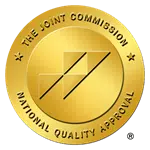There are many misconceptions around magic mushroom overdose. In this article I dispel some of these and clarify others. While acute physical overdoses are rare, psychological effects can be intense, underscoring the importance of accurate risk and safety information. This ensures users make informed decisions, balancing curiosity with awareness of potential mental health impacts.

Understanding Magic Mushroom Effects
Magic mushrooms, primarily known for their psychoactive properties, owe their effects to psilocybin, a compound that, upon ingestion, converts to psilocin in the body. Psilocin is the actual chemical responsible for the psychedelic experiences associated with these fungi.
The compound interacts with serotonin receptors in the brain, leading to altered perception, mood, and thought patterns. This interaction can result in profound shifts in consciousness, often described as spiritual or significant personal insights, alongside visual and auditory hallucinations.
The experiences and intensity levels of magic mushroom effects can vary widely among users. Factors such as the mushroom species, dose, and user’s expectations can significantly influence the journey. Some common experiences include:
- Enhanced colors and sounds
- Distorted sense of time
- Euphoria
- A feeling of deep connection to the universe or oneself
On the other hand, users can also encounter challenging experiences, such as:
- Anxiety
- Paranoia
- Disturbing hallucinations, often referred to as a “bad trip”
Individual factors play a critical role in shaping one’s experience with magic mushrooms. Physical aspects, such as body weight and metabolism, can affect the intensity and duration of the psychedelic journey. Psychological state and setting — the user’s mental state and the physical and social environment in which the consumption occurs — are also crucial.
A supportive, safe environment and a positive mindset can enhance the experience, making it more likely to be beneficial or enjoyable. Conversely, taking mushrooms in a stressful setting or with a troubled mindset can lead to unpleasant experiences.
Understanding these variables is essential for anyone considering the use of magic mushrooms. Awareness and respect for the potency of psilocybin, combined with informed decisions about dosage and setting, can help manage risks and enhance the potential for positive, transformative experiences.
Low Risk of Overdose on Magic Mushrooms
Magic mushrooms are known for their low toxicity and minimal risk of overdose, particularly in comparison to other substances. Psilocybin, the psychoactive compound in these mushrooms, has a high safety margin, meaning that the lethal dose is significantly higher than the effective dose used for psychedelic experiences.
However, this doesn’t negate the importance of responsible use. Proper dosing and understanding one’s tolerance are crucial to ensure safety and minimize the risk of adverse reactions. Adverse experiences, often mistaken for overdoses, can include intense anxiety, paranoia, and disturbing hallucinations, usually resulting from taking too high a dose or having a low tolerance.
Differentiating between a true overdose and an adverse reaction is essential. An overdose implies a toxic effect that can cause serious physical harm, which is rare with psilocybin. In contrast, adverse reactions are often psychological, highlighting the need for preparation, setting, and mindset in managing the risks associated with magic mushrooms. Responsible use, including thorough research and possibly consulting with more experienced individuals, can mitigate these risks, leading to safer and more positive experiences.

Recognizing Signs of Adverse Reactions or Overdose
Recognizing the signs of adverse reactions or a potential overdose on magic mushrooms is crucial for safety.
Physical symptoms may include:
- Nausea
- Vomiting
- Increased heart rate
- Changes in blood pressure
Psychological symptoms can be more varied, including:
- Intense anxiety
- Paranoia
- Confusion
- Experiencing disturbing visions or thoughts
These symptoms, while typically more psychological than physical in nature, underscore the importance of understanding and monitoring one’s response to psilocybin.
Medical Assistance: Understanding when to seek professional medical assistance is critical. If an individual experiences severe panic, loss of touch with reality, or symptoms of serotonin syndrome (a rare but serious condition that can occur when substances increase serotonin levels too much), it’s time to seek help. Immediate medical attention can provide the necessary support and interventions to navigate these intense experiences safely.
Combination With Other Substances: Additionally, potential risks increase when magic mushrooms are combined with other substances, including alcohol, prescription medications, and recreational drugs. These combinations can unpredictably intensify effects, potentially leading to more severe adverse reactions. Awareness and caution regarding substance interactions are essential for minimizing risks and ensuring a safer experience with magic mushrooms.
Promoting Responsible Use and Harm Reduction
Promoting responsible use and harm reduction in the context of magic mushroom experiences is paramount to ensuring safety and maximizing the potential benefits of these psychedelic substances.
Setting and Intention: The significance of setting, intention, and informed consent cannot be overstated. A supportive and comfortable environment, along with a clear and positive intention for the experience, lays the foundation for a more positive and insightful journey. Informed consent, ensuring that individuals are fully aware of the potential effects and risks associated with magic mushrooms, is crucial for autonomy and safety.
Minimizing Risks: Strategies for minimizing risks are diverse and essential. Testing the substance for authenticity and potency can prevent accidental ingestion of harmful substances and help gauge appropriate dosages. Having a trusted, sober trip sitter can provide emotional support and assistance if the experience becomes challenging. Ensuring the environment is safe, familiar, and free from hazards can significantly reduce the risk of accidents or negative experiences. Moreover, being in a mentally stable state and choosing a time when one is free from obligations can enhance the experience’s quality.
Comfort Zones: Encouraging individuals to stay within their personal comfort zones and to start with lower doses, especially for beginners, can help avoid overwhelming experiences. Gradually increasing the dose in subsequent experiences allows for a better understanding of one’s tolerance and response to psilocybin.
Seeking professional guidance, particularly from mental health professionals or organizations specializing in psychedelic harm reduction, can provide valuable insights and support for those exploring magic mushrooms. This approach fosters a culture of respect and caution towards psychedelics, emphasizing their potential for personal growth while acknowledging the importance of safety and well-being.

In Summary
While magic mushrooms present a low risk of overdose, particularly in terms of physical toxicity, the importance of harm reduction and responsible use cannot be overstated. Informed decision-making, based on a comprehensive understanding of psilocybin’s effects, personal tolerance, and the setting of the experience, is crucial. Users are encouraged to prioritize safety by seeking assistance from qualified professionals when necessary, ensuring a more positive and beneficial psychedelic experience.
Key Takeaways
- Magic mushrooms have a low risk of overdose when used responsibly.
- Proper dosage, preparation, and knowledge of individual tolerance are crucial.
- The effects of magic mushrooms vary and depend on factors such as set and setting.
- Recognizing the signs of potential overdose or adverse reactions is essential.
- Prioritizing harm reduction and seeking professional help when needed is important.


















